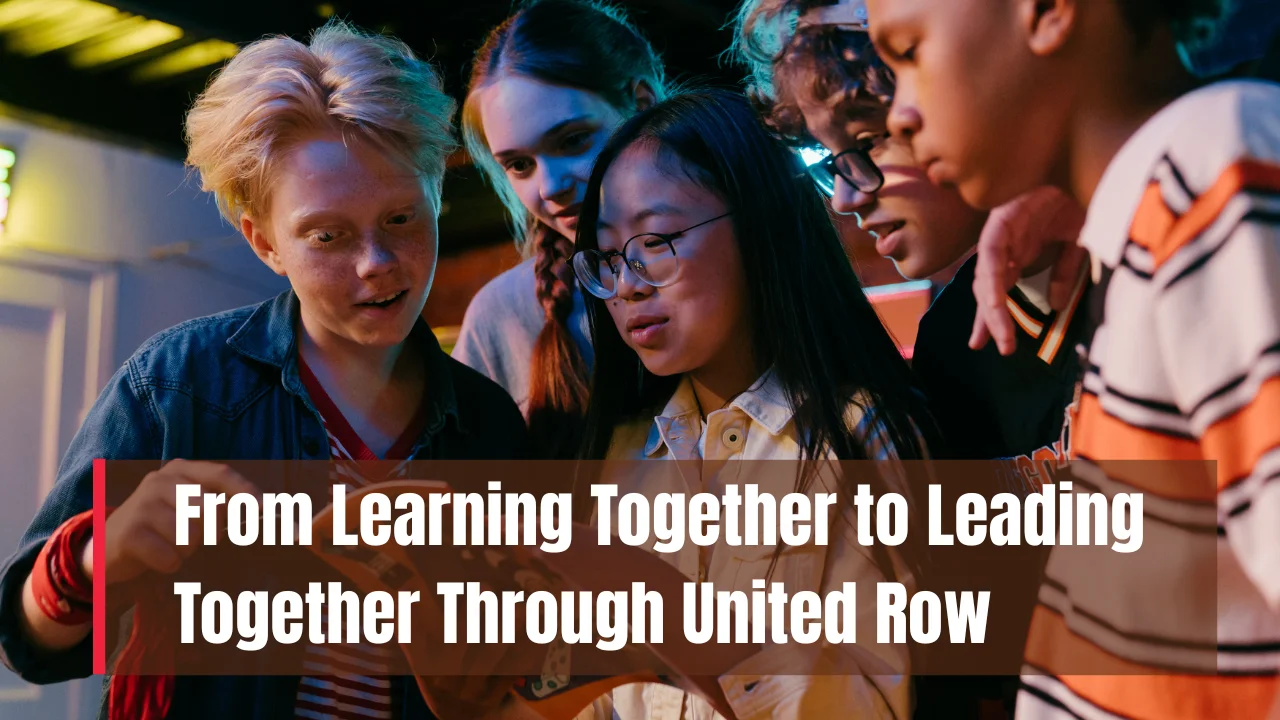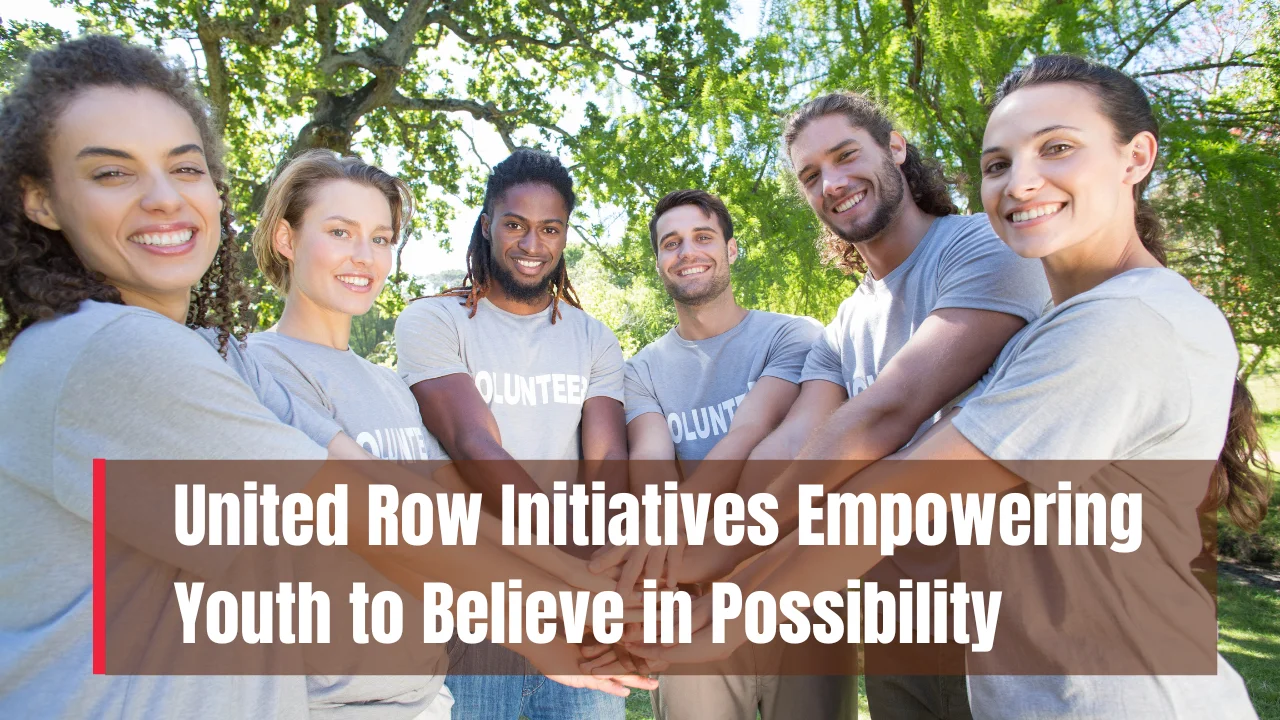United Row: United Row is creating a new path for youth development by combining two powerful forces: sports and communication. Unlike traditional programs that focus only on athletic performance or academic excellence, United Row bridges the gap by fostering leadership through physical activity and strengthening public speaking skills through structured teamwork and interaction.
This article explores how United Row turns everyday sports training into a powerful tool for building communication and leadership. You’ll see how simple team roles evolve into opportunities for growth, how public speaking becomes second nature through practice, and why this model stands out in shaping tomorrow’s leaders. We’ll break down how the program works, what makes it different, and how it helps young individuals thrive both on and off the field.
How United Row Builds Public Speaking Skills Through Sports Leadership
United Row is a youth-centered program that integrates sports leadership with strong communication development. While many youth initiatives focus on either athletic training or classroom learning, United Row blends both to deliver real-world leadership skills. Through active participation, structured roles, and real speaking opportunities, young athletes learn how to express themselves clearly, motivate others, and handle pressure—key traits for public speaking. This approach also builds vital soft skills like active listening, confidence, and clarity, setting the foundation for lifelong success.
Overview Table: What United Row Offers
| Key Feature | Description |
| Sports-Based Leadership | Encourages leadership through team sports and active group roles |
| Communication Skill Workshops | Teaches tone, body language, and message structure in real-life speaking scenarios |
| Real-Time Speaking Opportunities | Public events, team meetings, and presentations for confidence building |
| Inclusive Environment | Open to all skill levels with a focus on personal growth and expression |
| Role Rotation | Allows each participant to lead, speak, and guide teams on a rotating basis |
Sports as a Foundation for Communication
Sports offer a natural environment for developing communication skills. On the field, young people need to think fast, give instructions, encourage teammates, and respond to changing situations. In United Row, these actions are guided and used as training tools for effective speech and expression.
By teaching athletes how to communicate clearly under pressure, the program builds not just better players—but stronger speakers. The spontaneous, real-time nature of sports provides frequent speaking opportunities that make public speaking less intimidating and more practical. Over time, these quick interactions evolve into confident conversations, presentations, and speeches in various settings.
Leadership Roles That Enhance Speaking Abilities
A key aspect of United Row’s success is how it assigns rotating leadership roles. Instead of reserving leadership for the best players, it gives every participant a chance to lead drills, guide discussions, and give feedback. This creates equal access to leadership training and public speaking experiences.
When participants step into the role of captain or session leader, they are required to motivate teammates, explain drills, and reflect on group performance. These activities strengthen verbal clarity, persuasion, and group communication—all essential public speaking elements. Young leaders also learn how to read a room, adjust their tone, and stay composed—skills often missing in traditional speaking courses.
Structured Programs for Skill Building
United Row doesn’t rely on chance for communication growth. It includes structured, age-appropriate workshops that focus on improving soft skills through sports development. These sessions may cover how to deliver a motivational message, how to use body language effectively, or how to answer questions with confidence.
Each communication workshop is connected to the themes of teamwork and leadership, making the lessons relatable and applicable. Because the learning happens in a familiar context—like a sports setting—participants absorb it naturally and retain it longer. It’s not about memorizing speeches; it’s about practicing expression in real life.
Real-Life Practice Makes a Difference
The most powerful aspect of United Row is that it provides live speaking environments. Whether it’s addressing a group after a match, speaking during community sports events, or leading warm-up sessions, athletes get used to standing in front of people and expressing themselves.
These experiences strip away the fear often tied to public speaking. Instead of rehearsed performances, young people learn to speak from experience, share genuine thoughts, and use their voice to influence and inspire. This consistent exposure to real audiences makes a lasting impact on self-belief and articulation.
Team Culture That Encourages Speaking
The culture within United Row is built on openness and encouragement. Every voice is valued, and team members are expected to contribute during meetings, planning, and review sessions. This constant encouragement to speak helps even the shyest participants develop their voice over time.
Instead of formal, high-pressure speaking assignments, the culture promotes everyday speaking moments—giving an opinion, sharing an idea, or asking a question. These frequent micro-opportunities build fluency, reduce anxiety, and develop strong communication habits that carry over into school and life.
Key Ways United Row Builds Public Speaking Skills
- Role Assignments:
Every participant rotates through leadership roles. Whether leading drills, presenting game plans, or giving team feedback, these roles encourage responsibility and communication in a safe environment. - Presentation Challenges:
Participants are given topics related to teamwork, sportsmanship, or personal growth. Presenting these topics helps improve storytelling, structure, and delivery skills in a low-pressure setting.
Benefits Beyond the Field
The skills gained through United Row go far beyond the playing field. Public speaking, leadership, and clear communication are crucial for success in academics, college applications, interviews, and future careers. More than just a youth sports program, United Row is a personal growth platform.
As participants gain confidence, they become more likely to take on leadership positions in school, speak up in class, and even mentor others. The combined experience of sports and communication builds well-rounded individuals ready for real-world challenges.
FAQs
What is the age range for joining United Row?
Do participants need prior sports experience?
How often do public speaking activities take place?
Is there a focus on academic achievement as well?
Are parents involved in the program?
Conclusion
United Row is changing the way we think about youth leadership and communication. By using sports as the foundation and adding structured leadership training, the program builds not just better athletes—but confident speakers and future leaders. With its unique model, it offers something most youth programs overlook: the power to express oneself with clarity and conviction.
For parents, educators, or coaches looking to develop strong communicators and leaders, United Row is a practical and powerful solution. Its commitment to personal growth, inclusivity, and real-world skills makes it stand out. If you’re curious about helping your child unlock their full potential, this could be the perfect starting point.
Feel free to share your thoughts or questions in the comments below. And if you’re interested in how sports can shape character and communication, explore more articles or check out our youth development resources today.












